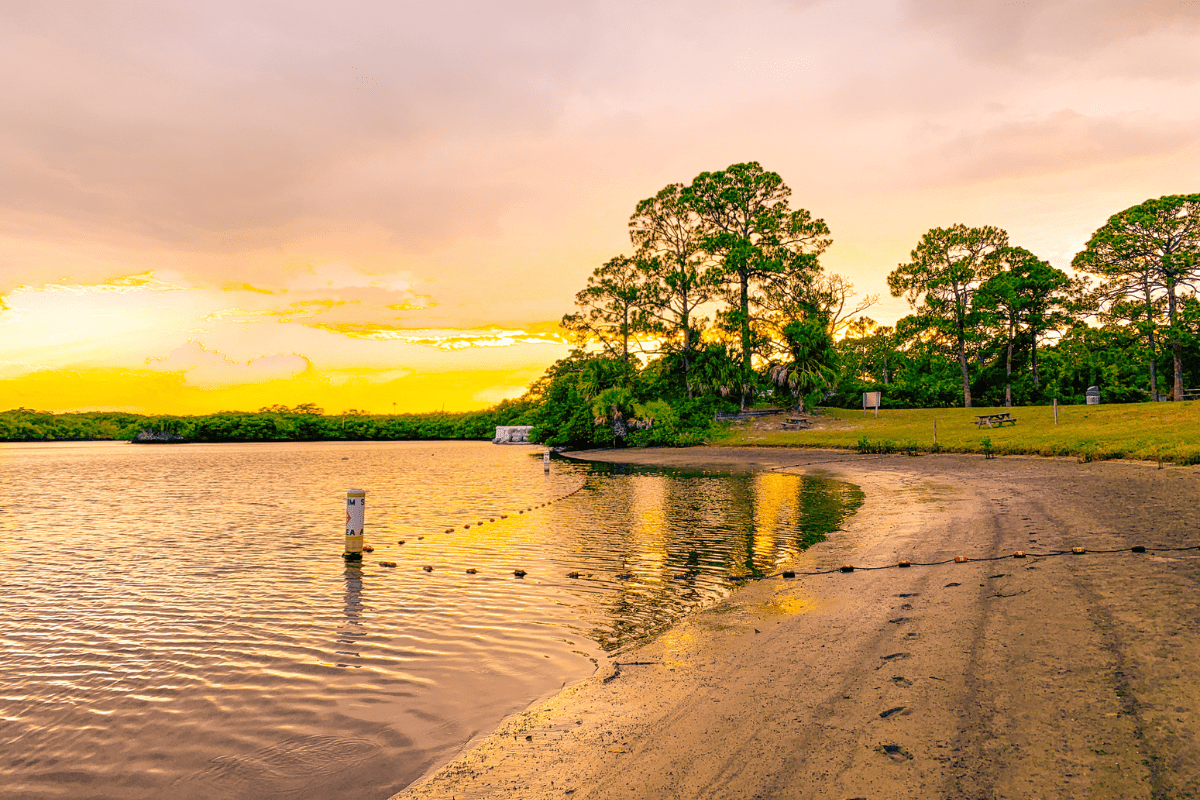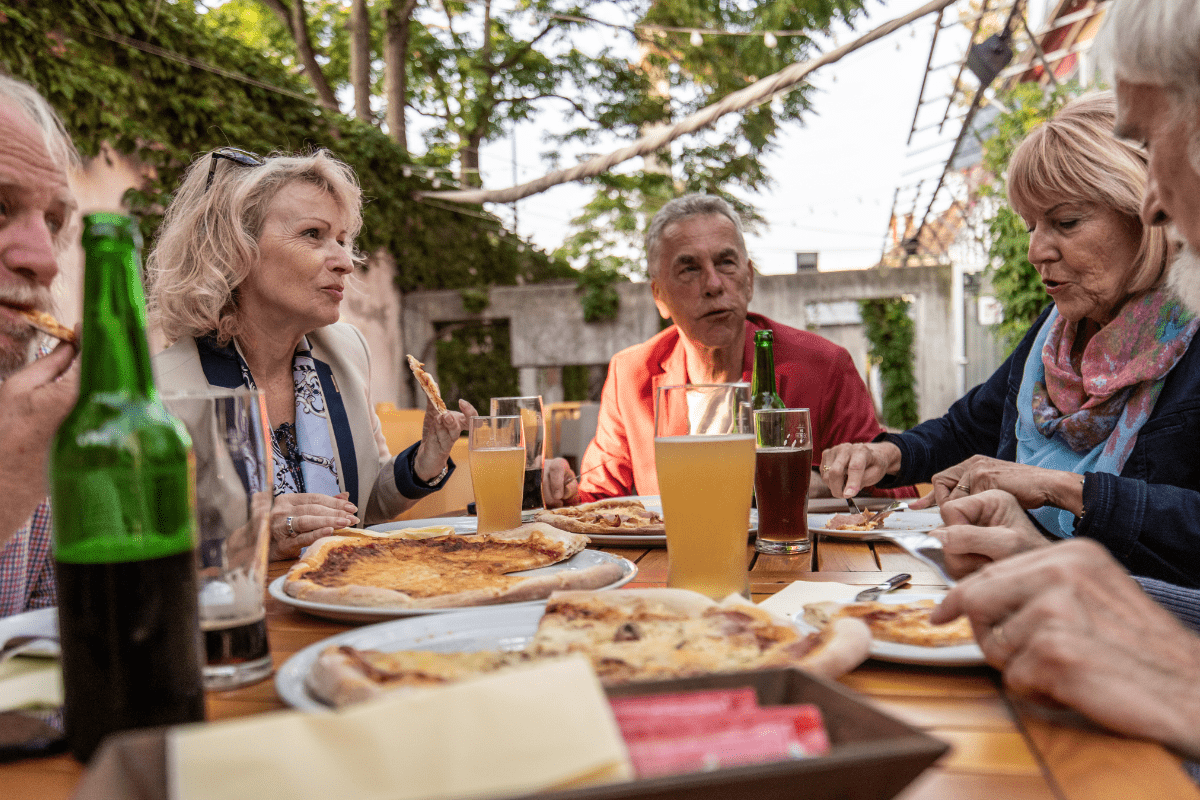Delray Beach somehow manages to be both a retiree paradise and a hipster haven, which honestly shouldn't work but totally does. Whether you're hunting for a beachfront condo, a golf course estate, or just a normal house where you can walk to get coffee without getting in your car (revolutionary concept in Florida, I know), this guide breaks down everything you need to know about Delray's wildly different neighborhoods.
The current market: surprisingly good news for buyers
Let's start with the elephant in the room… prices. The median home price sits around $510,000, though that number is about as useful as a screen door on a submarine when you realize downtown condos are going for over a million while Kings Point has units under $200k. What's actually interesting is that we're seeing a 29% inventory increase year-over-year, which means you might actually have choices instead of fighting seventeen other buyers for that one decent house.
Properties are sitting on the market for 73 to 95 days on average, and here's the kicker: 89% of homes are selling under asking price. Yes, you read that correctly. We're in that rare Florida moment where buyers can actually negotiate without getting laughed out of the room. The downtown market operates in its own special universe where median prices hit $1,020,500 and properties still move in 58 days because apparently everyone wants to live where they can stumble home from Atlantic Avenue.
Why Delray Beach actually makes sense
Before we dive into specific neighborhoods, you need to understand why people lose their minds over this place. It's not just the beaches (though those help), it's the weird combination of factors that somehow work together like pineapple on pizza… controversial but oddly satisfying.
Location without the suffering
Delray sits in that geographic sweet spot where you're 30-35 minutes from West Palm Beach, 15-20 minutes from Boca Raton, and about 45 minutes from Fort Lauderdale. This means you can actually have a job in any of these places without spending your entire life on I-95, though let's be honest, you'll still spend a good chunk of it there.
The lifestyle thing everyone talks about
The city earned the title "Most Fun Small Town in America," which sounds like something a chamber of commerce made up but is actually from Rand McNally. With a Walk Score of 91 in downtown (that's "Walker's Paradise" for those keeping track), you can actually live without a car if you stay near Atlantic Avenue. There are over 100 restaurants and bars on that street alone, which either sounds amazing or exhausting depending on your age and liver condition.
Schools and safety: the stuff that actually matters
Real talk: Delray's crime rate is 42% higher than the Florida average, with about a 1 in 25 chance of becoming a crime victim. But before you panic, most of this is concentrated in tourist areas and involves property crime, not violent crime. The northwest neighborhoods and gated communities are basically Fort Knox, while downtown has more incidents because drunk tourists do dumb things.
The school situation
Palm Beach County School District maintains an "A" grade rating, which is genuinely impressive. The crown jewel is Morikami Park Elementary, ranked #6 in all of Florida with 93% math proficiency. That's the kind of stat that makes parents move across town.
Your high school options include Atlantic Community High with its International Baccalaureate programs and 89% graduation rate. For the arts-inclined, there's Plumosa School of the Arts, an A-rated K-8 that makes other schools look boring. And if you've got the cash, American Heritage School is literally Florida's top-ranked private school, though your wallet will cry.
The neighborhoods: from bargain to bonkers
Now for the main event. Delray's neighborhoods range from "I can't believe this is so cheap" to "I need to win the lottery first." Each has its own personality, and picking the wrong one is like ordering a margarita at a wine bar… technically possible but you'll regret it.
For the budget-conscious (yes, they exist in Florida)
Kings Point is where you go when you want to live in Delray without selling a kidney. This 55+ community has condos from $100,000 to $329,000, with HOA fees of $235-$638 per month that actually include cable, security, and transportation. Built between 1973 and 1985, it's not winning any architecture awards, but with 7,200 units, three clubhouses, five pools, and an 18-hole golf course, who cares?
The community sits right next to Delray Medical Center, which is either comforting or ominous depending on your perspective. Crime is virtually non-existent thanks to 24-hour security and the fact that most criminals aren't interested in communities where dinner is at 4:30 PM. They even run free buses to shopping and medical appointments, solving that whole "I shouldn't be driving anymore but I'm too stubborn to admit it" problem.
Delray Shores starts around $500,000 and offers something increasingly rare in South Florida: actual diversity. With 15% Haitian ancestry and 20% French-speaking households, you might actually hear languages other than English and complaints about the weather. Safety ratings are moderate, which in Delray-speak means "lock your car doors but don't panic."
Family-friendly zones (where the schools don't suck)
Seven Bridges is where families go when they want that country club life but also need good schools and a place for kids to burn energy. Homes range from $1.3 million to over $3 million, with HOA fees of $684-$882 monthly that actually get you something useful.
The 30,000 square foot clubhouse isn't messing around with its 12 tennis courts, basketball facilities, and splash parks. GL Homes built this place like a resort that happens to have houses, which is basically the Florida way. It's 10 minutes west of downtown, meaning you're close enough to civilization but far enough away that your teenagers can't walk to trouble.
Lake Ida is Delray's answer to "what if we made a neighborhood that's expensive but actually worth it?" The median list price hits $2.1 million for waterfront properties, but non-waterfront homes range from $300,000 to $800,000, which passes for reasonable around here.
The neighborhood features a 189-acre park with boat launches and what might be Florida's best dog parks. Average residents are 45 years old with $96,000 household incomes, which translates to "successful but not obnoxious about it." It's consistently rated one of Delray's safest neighborhoods, probably because criminals can't afford to live there either.
Young professional magnets
Downtown/Atlantic Avenue is ground zero for Delray's "we're not boring like the rest of Florida" movement. The median price of $1,020,500 gets you into the action at $747 per square foot. The area scores a Walk Score of 91, meaning you can actually walk places, which is revolutionary for Florida.
The average resident is 39 years old making $102,000, which explains all the craft cocktail bars and boutique fitness studios. Properties move in 58 days despite the prices because everyone wants to live where they can walk to brunch. Just remember that higher crime stats here are mostly drunk tourists doing dumb things, not actual danger to residents.
Pineapple Grove Arts District is what happens when artists gentrify a neighborhood but in a good way. Homes range from $400,000 to $3 million, with condos at $600-900 per square foot. The neighborhood features the Arts Garage, Cornell Museum, and Artists Alley, making it feel like Portland and Miami had a baby.
The golf life (because this is still Florida)
If you're the type who judges neighborhoods by their golf courses, Delray's got you covered with options that range from "merely expensive" to "are you kidding me?"
Mizner Country Club doesn't mess around. Homes run $1.1 to $3.2 million with an average selling price of $1,677,045. But wait, there's more! Golf membership requires a $170,000-$200,000 equity payment plus annual dues of $21,483-$28,569. The Arnold Palmer-designed course got a $22 million renovation in 2019, creating something called "The Central" lifestyle complex, which sounds made up but isn't.
Addison Reserve takes it up another notch with homes from $975,000 to $6.65 million. The Platinum Club of America facility ranks #7 nationally, which apparently matters to golf people. Membership options range from $66,842 for "Sports" to $118,592 for "Full Golf," and yes, those are real categories that adults pay for.
Beachside living (for lottery winners)
Ocean Delray and the luxury oceanfront properties are where reality checks go to die. Ultra-luxury units run $4 to $8 million at $1,242-$2,000 per square foot. If that made you choke on your coffee, the mid-range Delray Beach Club offers units from $615,000 to $1,249,000, which is practically a steal for oceanfront.
These properties average 156-241 days on market because the buyer pool is limited to people who pay cash and argue about yacht sizes. But you do get direct beach access and the ability to humble-brag about your oceanfront address, so there's that.
The practical stuff nobody tells you
Here's what you actually need to know before pulling the trigger on any Delray neighborhood:
HOA reality check
Downtown buildings often have no HOA restrictions, which sounds great until your neighbor decides to paint their door neon pink. Gated communities run $600-$1,200 monthly, but at least you get security and someone else mows the lawn. Kings Point's $235-$638 includes everything, making it the Costco of HOA deals. Golf communities add mandatory memberships on top, because apparently just living there isn't expensive enough.
The development tsunami
The Live Local Act is allowing increased density for workforce housing, which is code for "traffic's about to get worse." Parks at Delray is adding 747 units, Atlantic Crossing is a $300 million mixed-use project, and there's $120 million in public infrastructure improvements happening. Translation: buy now before construction makes everyone crazy.
Your neighborhood cheat sheet
After all that, here's your quick reference guide because nobody has time to read everything:
Best neighborhoods by lifestyle:
- Families wanting space: Seven Bridges
- Families wanting prestige: Lake Ida
- Young professionals: Downtown or Pineapple Grove
- Budget retirees: Kings Point
- Wealthy retirees: Addison Reserve
- Beach lovers: Anywhere oceanfront (bring money)
- Golf obsessed: Mizner Country Club
The western communities offer newer construction and resort amenities but require driving everywhere. Eastern areas give you walkability and beach access but cost more than a small country's GDP. Downtown commands $747 per square foot because walking to dinner is apparently worth a fortune.
Making the actual decision
Look, buying in Delray Beach is like picking a restaurant in a city with too many good options… you'll probably be happy wherever you land, but you'll always wonder about the place you didn't choose. The market's actually favorable for buyers right now with that 29% inventory increase and 89% of homes selling under ask.
Visit during season (winter) to see the crowds and traffic at their worst, then visit in August to see if you can handle the heat and humidity when it feels like living inside someone's mouth. Check out neighborhoods at different times to see if that "quiet street" turns into a parking lot during rush hour.
Most importantly, be honest about what you actually need versus what sounds good at a cocktail party. Sure, oceanfront sounds amazing, but if you're afraid of hurricanes and hate sand in your car, maybe Seven Bridges with its country club and zero storm surge makes more sense. And remember, this is Florida… whatever you choose, you're still going to complain about the humidity, the traffic, and the bizarre wildlife, but you'll secretly love it anyway.





